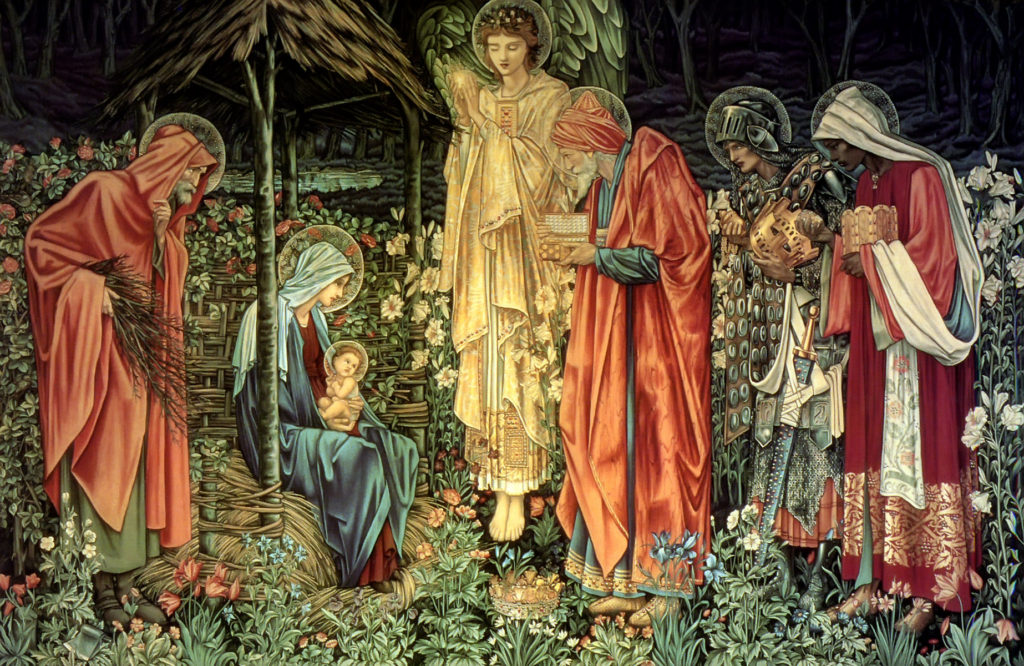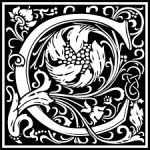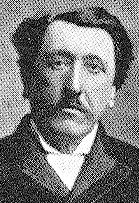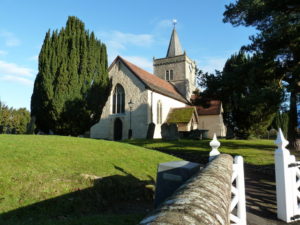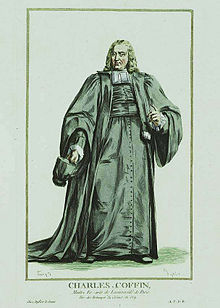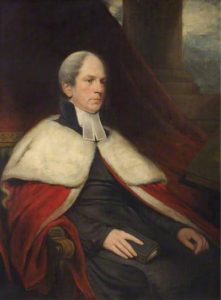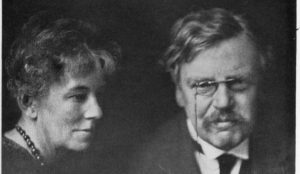The Epiphany, Edward Burne-Jones
Mount Calvary Church
Eutaw Street and Madison Avenue
Baltimore, Maryland
A Parish of the Roman Catholic Personal Ordinariate of St. Peter
Anglican Use
Rev. Albert Scharbach, Pastor
The Epiphany of Jesus Christ
Sunday, January 7, 2018
8:00 AM Said Mass
10:00 AM Sung Mass
Prelude
Common
An Anglican Folk Mass, Martin Shaw
Hymns
As with gladness men of old
What star is this, with beams so bright
Songs of thankfulness and praise
Anthems
Reges Tharsis, William Byrd
Here is the little door, Herbert Howells
Postlude
_____________________________
The Epiphany Proclamation
Dear brothers and sisters,
the glory of the Lord has shone upon us,
and shall ever be manifest among us,
until the day of his return.
Through the rhythms of times and seasons
let us celebrate the mysteries of salvation.
Let us recall the year’s culmination,
the Easter Triduum of the Lord:
his last supper, his crucifixion, his burial,
and his rising celebrated
between the evening of the Twenty-ninth of March
and the evening of the Thirty-first of March,
Easter Sunday being on the First day of April.
Each Easter — as on each Sunday —
the Holy Church makes present the great and saving deed
by which Christ has for ever conquered sin and death.
From Easter are reckoned all the days we keep holy.
Ash Wednesday, the beginning of Lent,
will occur on the Fourteenth Day of February.
The Ascension of the Lord will be commemorated on
Sunday, the Thirteenth of May or Thursday, the Tenth day of May.
Pentecost, joyful conclusion of the season of Easter,
will be celebrated on the Twentieth day of May.
And, this year the First Sunday of Advent will be
on the Second day of December, 2018.
Likewise the pilgrim Church proclaims the passover of Christ
in the feasts of the holy Mother of God,
in the feasts of the Apostles and Saints,
and in the commemoration of the faithful departed.
To Jesus Christ, who was, who is, and who is to come,
Lord of time and history,
be endless praise, for ever and ever.
Amen.
_______________________________
Prelude
____________________________________________
Hymns
As with gladness men of old is a prayer for God’s presence in our lives as we draw closer to Him. The Magi showed faith in God and eagerness, as well as sacrifice, in their journey to see the Christ-child. So may we live as though we really believe and eagerly look forward to the day when we shall one day see Him. In the third stanza, the gifts of the Magi are not even named. The Magi took the trouble to bring “gifts most rare” on a long journey. So may we “All our costliest treasures bring, Christ, to Thee, our heavenly King.” This pilgrimage is not easy, so we sing, “Holy Jesus, every day keep us in the narrow way,” remembering that Jesus said, “For the gate is narrow and the way is hard that leads to life, and those who find it are few” (Matthew 7:14, ESV).
1 As with gladness men of old
did the guiding star behold;
as with joy they hailed its light,
leading onward, beaming bright;
so, most gracious God, may we
evermore be led to Thee.2 As with joyful steps they sped
to that lowly cradle-bed,
there to bend the knee before
Him whom heav’n and earth adore;
so may we with willing feet
ever seek Thy mercy-seat.3 As they offered gifts most rare
at that cradle rude and bare;
so may we with holy joy,
pure, and free from sin’s alloy,
all our costliest treasures bring,
Christ, to Thee, our heav’nly King.4 Holy Jesus, ev’ry day
keep us in the narrow way;
and, when earthly things are past,
bring our ransomed lives at last
where they need no star to guide,
where no clouds Thy glory hide.5 In that heav’nly country bright
need they no created light;
Thou its Light, its Joy, its Crown,
Thou its Sun which goes not down;
there for ever may we sing
alleluias to our King.
Here is King’s College, Cambridge.
Here is a short documentary on the hymn.
William Chatterton Dix
William Chatterton Dix (1837 – 1898) was an English writer of hymns and carols. He was born in Bristol, the son of John Dix, a local surgeon, who wrote The Life of Chatterton the poet, whence the son’s middle name. William was educated at the Grammar School, Bristol, for a mercantile career, and became manager of a maritime insurance company in Glasgow where he spent most of his life.
In 1859 he was struck with a severe illness and was unable to attend Epiphany services; instead he wrote As with Gladness Men of Old. In addition to As with Gladness Men of Old, his hymns What Child Is This? and Alleluia! Sing to Jesus appear in the 1940 Hymnal.
This hymn is always sung to the tune DIX. Conrad Kocher, a German composer and church musician, originally wrote a longer version of this tune for a German chorale, “Treuer Heiland, wir sind hier,” which was published in 1838. William H. Monk omitted one phrase and altered a few notes of Kocher’s tune to fit “As With Gladness” for the 1861 edition of Hymns Ancient and Modern, for which he was music editor. Even though Dix did not like the choice of this tune, it goes so well with the text that it now bears his name. DIX is a simple bar form tune (AAB) with a wavelike contour in each of its three lines.
_______________________________
What star is this is a translation by John Chandler of Quae stellae sole pulchrior/corruscat? by Charles Coffin.
What star is this, with beams so bright,
More beauteous than the noonday light?
It shines to herald forth the King,
And Gentile to His crib to bring.True spake the prophet from a-far
Who told the rise of Jacob’s star:
And eastern sages with amaze
Upon the wondrous token gaze.The guiding star above is bright:
Within them shines a clearer light,
And leads them on with power benign
To seek the Giver of the sign.Their love can brook no dull delay;
Though toil nor danger block the way
Home, kindred, father land and all
They leave at their Creator’s call.O Jesus, while the star of grace
Impels us on to seek thy face,
Let not our slothful hearts refuse
The guidance of thy light to use.To God the Father, heav’nly Light,
To Christ, revealed in earthly night,
To God the Holy Ghost we raise
Our equal and unceasing praise.
Here is a meditative rendition by the University of Texas Chamber Singers. Here is St John’s Detroit.
Quæ stella sole pulcrior
Coruscat ? hæc Regis novi
Revelat ortus; hæc Dei
Præsignat ad cunas iter.Stat vatibus priscis sides:
En stella surgit ex Jacob;
Arrectus ad spectaculum
Eous orbis emicat.Dum sidus admonet foris,
Lux fulget intus clarior;
Suadetque vi blandâ Magos
Signi datorem quærere.Segnes amor nescit moras;
Labor, pericla nil movent:
Domum, propinquos, patriam,
Deo vocante, deserunt.Micante dum nos allicis,
O Christe, stellâ gratiæ;
Ne tarda cœlesti sinas
Obstare corda lumini.Qui lumen est, sit laus Patri:
Qui se revelat Gentibus
Sit laus perennis Filio:
Par sit tibi laus, Spiritus.
Here is the chant of Quae stella sole pulchrior
All Saints, Witley, Surrey
John Chandler (1806 – 1876) was the son of the vicar of Witley. John was educated at Corpus Christi College, Oxford (BA 1827, MA 1830). He took Holy Orders, becoming a Fellow of his College and curate of Witley. He became vicar of Witley in 1839, remaining there until his death. He is chiefly known for The Hymns of the Primitive Church, published in 1837 (a later edition, with additional hymns, appeared as The Hymns of the Church, mostly Primitive, in 1841).
In the Preface to The Hymns of the Primitive Church, Chandler wrote:
It has long struck me, indeed, that as our Liturgy is compiled, in a great measure, from ancient materials, so, if there were any ancient hymns still extant, of the same date and character with the prayers, they would be most suitable for our purpose; for they would, from their antiquity, carry more weight with them than any modern ones could do…
He disapproved of ‘those rhyming jingling hymns which are found in the Popish missals, as barbarous in their Latinity, as defective in their doctrine’. He then described how he had found the deliberately unmetrical translations (by Isaac Williams*) in the British Magazine of hymns from the Paris Breviary of 1736, got hold of a copy, and proceeded to translate some of them again in a manner suited to congregational singing. In his orotund way, Chandler addressed himself with heavy playfulness to the Church of England:
It will not, I trust, be unpleasing or unedifying to her members to see a Morning hymn by a Bishop of Milan of the fourth century [Ambrose] joined to one on the same subject by a Bishop of Salisbury of the seventeenth. Perhaps, if the authorities of our Church carry on the design, we may see next to them a hymn by a Bishop of Calcutta of the nineteenth.
________________________________________________________________
Charles Coffin
Charles Coffin (1676 – 1749 ) was a French teacher, writer and Jansenist who was Rector of the University of Paris. Among his writings are a number of hymns which have been translated into English. In 1701, he was appointed chief assistant to Charles Rollin, principal of the Collège de Beauvais. He succeeded Rollin as principal in 1712. In 1718. he became rector of the University of Paris, a post which he held until his death.
Coffin published in 1727 some of his Latin poems, for which he was already noted, and in 1736 the bulk of his hymns appeared in the Paris Breviary of that year, an edition of which was published in 1838 at Oxford by John Henry Newman. 1736 also saw the publication of Coffin’s Hymni Sacri Auctore Carolo Coffin.
The Hymni Sacri included a poem adapted from the original chant, Jordanis oras prævia, which Rev. John Chandler later translated to the hymn On Jordan’s Bank the Baptist’s Cry set to the tune Winchester New for use at Matins during Advent. Chandler also translated Coffin’s The Advent of Our King.
Among his other works is an ode in praise of the wines of Champagne. This work is a version of a similar poem in which Bénigne Grenan, professor at Harcourt College, praised the pre-eminence of Burgundy wine, and that one of Charles Coffin’s Jansenist friends, Marc-Antoine Hersan, had had fun reciting one evening at a dinner.
While the papal bull Unigenitus condemned Jansenism, many in France interpreted it as an attack on the perogatives of the French church. The University of Paris and the provincial Parlements were hotbeds of opposition. The University was known to harbor Jansenist sympathizers; the Parlement of Paris went so far as to threatened to confiscate the temporalities of the Archbishop. As rector of the University and clerk to the Parlement of Paris, even Coffin’s hymns were viewed by some with suspicion.
Coffin died of pneumonia in Paris 20 June 1749. Due to his persistence in appealing against the apostolic constitution Unigenitus, under instructions from the Archbishop, who wished to make an example, the parish rector of Saint-Étienne-du-Mont, refused to administer last rites to him, or give him a Christian burial ] Four thousand Parisians joined the funeral procession. Because the crown had supported the suppression of the Jansenists, Danton notes that the religious rite took on political overtones. The Parlement of Paris subsequently issued an official and strong “remonstrance” to the king. Richard J. Janet sees the resulting popular demonstrations as contributing to the growing disenchantment with the monarchy that would later play into the coming Revolution.
Praetorius also harmonized this tune, puer nobis nascitur. It probably predates him and may have folk origins.
_____________________________________
Songs of thankfulness and praise was written by Christopher Wordsworth, who described it as “recapitulation of the successive manifestations of Christ…and anticipation of that future great and glorious Epiphany, at which Christ will be manifest to all, when He will appear again to judge the world.” Note that the stanza “Sun and moon shall darkened be” omitted in the 1940 Hymnal. In many of the hymns of Advent and Christmas, references to the Second Coming, with its wonders and terrors, are usually toned down or omitted.
Songs of thankfulness and praise,
Jesus, Lord, to thee we raise,
Manifested by the star
To the sages from afar;
Branch of royal David’s stem
In thy birth at Bethlehem;
Anthems be to thee addressed,
God in Man made manifest.Manifest at Jordan’s stream,
Prophet, Priest, and King supreme;
And at Cana, wedding-guest,
In thy Godhead manifest;
Manifest in power divine,
Changing water into wine;
Anthems be to thee addressed,
God in Man made manifest.Manifest in making whole
Palsied limbs and fainting soul;
Manifest in valiant fight,
Quelling all the devil’s might;
Manifest in gracious will,
Ever bringing good from ill;
Anthems be to thee addressed,
God in Man made manifest.Sun and moon shall darkened be,
Stars shall fall, the heavens shall flee,
Christ will then like lightning shine,
All will see his glorious sign:
All will then the trumpet hear;
All will see the Judge appear;
Thou by all wilt be confessed,
God in Man made manifest.Grant us grace to see thee, Lord,
Mirrored in thy holy word;
May we imitate thee now,
And be pure, as pure art thou;
That we like to thee may be
At thy great Epiphany;
And may praise thee, ever blest,
God in Man made manifest.
Christopher Wordsworth (1807-1885) was the nephew of the poet William Wordsworth. Christopher Wordsworth was an athlete, classicist, poet, and Anglican bishop of Lincoln, to which he was appointed by Disraeli.
He was born at Lambeth (of which parish his father was then the rector) the youngest son of Christopher Wordsworth, afterwards Master of Trinity College, Cambridge. He was educated at Winchester, where he distinguished himself both as a scholar and as an athlete. In 1826 he matriculated at Trinity College, Cambridge, and in 1830 graduated as Senior Classic in the Classical Tripos, and 14th Senior Optime in the Mathematical, won the First Chancellor’s Medal for classical studies, and was elected Fellow of Trinity.
Dr. Wordsworth, like the Wesleys, looked upon hymns as a valuable means of stamping permanently upon the memory the great doctrines of the Christian Church. He held it to be “the first duty of a hymn-writer to teach sound doctrine, and thus to save souls.” He thought that the materials for English Church hymns should be sought (1) in the Holy Scriptures, (2) in the writings of Christian Antiquity, and (3) in the Poetry of the Ancient Church. His own hymns more nearly resemble those of the Eastern, as may be seen by comparing The Holy Year with Dr. Mason Neale’s Hymns of the Eastern Church translated, with Notes, &c. The reason of this perhaps half-unconscious resemblance is not far to seek. Christopher Wordsworth, like the Greek hymnwriters, drew his inspiration from Holy Scripture, and he loved, as they did, to interpret Holy Scripture mystically. He thought that ”the dangers to which the Faith of England (especially in regard to the Old Testament) was exposed, arose from the abandonment of the ancient Christian, Apostolic and Patristic system of interpretation of the Old Testament for the frigid and servile modern exegesis of the literalists, who see nothing in the Old Testament but a common history, and who read it (as St. Paul says the Jews do) ‘with a veil on their heart, which veil’ (he adds) ‘is done away in Christ.’” In the same spirit, he sought and found Christ everywhere in the New Testament. The Gospel History was only the history of what “Jesus began to do and to teach” on earth; the Acts of the Apostles and all the Epistles were the history of what he continued to do and to teach from Heaven; and the Apocalypse (perhaps his favorite book) was “the seal and colophon of all.”
_________________________________________
Anthems
Reges Tharsis, William Byrd
Reges Tharsis et insulae munera offerent,reges Arabum et Saba dona adducent. Et adorabunt eum omnes reges terrae, omnes gentes servient ei.
The kings of Tharsis and the isles offer their gifts, the kings of Arabia and Sheba bring gifts. And all the kings of the earth worship him, all peoples bow before him.
Here is Pomerium.
______________________
Here is the little door, Herbert Howells
Here is the little door, lift up the latch, oh lift! We need not wander more but enter with our gift; Our gift of finest gold, Gold that was never bought nor sold; Myrrh to be strewn about his bed; Incense in clouds about his head; All for the Child who stirs not in his sleep. But holy slumber holds with ass and sheep. 2) Bend low about his bed, for each he has a gift; See how his eyes awake, lift up your hands, O lift! For gold, he gives a keen-edged sword (Defend with it Thy little Lord!), For incense, smoke of battle red. Myrrh for the honoured happy dead; Gifts for his children terrible and sweet, Touched by such tiny hands and Oh such tiny feet.
Here is Chanticleer.
Frances and G. K. Chesterton
The anthem is a 1918 setting by Howells of the following poem by Frances Chesterton (1869-1938):
Here is the little door, lift up the latch, oh lift!
We need not wander more but enter with our gift;
Our gift of finest gold,
Gold that was never bought nor sold;
Myrrh to be strewn about his bed;
Incense in clouds about his head;
All for the Child who stirs not in his sleep.
But holy slumber holds with ass and sheep.
Bend low about his bed, for each he has a gift;
See how his eyes awake, lift up your hands, O lift!
For gold, he gives a keen-edged sword
(Defend with it Thy little Lord!),
For incense, smoke of battle red.
Myrrh for the honoured happy dead;
Gifts for his children terrible and sweet,
Touched by such tiny hands and
Oh such tiny feet.
Frances Chesterton (née Blogg) has been somewhat overshadowed in posterity by the fame of her husband G. K. Chesterton. Although the published author of four books, she is best known today for another Christmas poem,’How far is it to Bethlehem?’, set to a hymn tune and frequently subject to such twee renderings as these two. Howells’s setting of ‘Here is the Little Door’ is perhaps the perfect antidote to an over-sweetened Christmas, taking a subtle approach to a deeply ambivalent text.
Even in the relatively early ‘Here is the Little Door’ there is an indication of the mystical choral style that Howells would later make his own. The poem depicts the visit of the Magi, first through evocative description of the traditionally attributed gifts – gold, myrrh and incense. Howells uses a modal harmony throughout, with a hushed opening in A minor leading soon after to a blazing cadence in C major for ‘Our gift of finest gold’. At ‘Incense in clouds about his head’ Howells uses his characteristic ‘Phrygian’ flattened second in the bass. Indeed there is a brief settling on the Phrygian 2nd as a chord of Eb major at ‘sleep’ before a minor plagal cadence (with added 7th!) leads us to the D major conclusion of the first verse.
The second verse is where Howells’s word-painting comes to the fore in illustrating the ambivalence of Chesterton’s text. Christ repays the Magi with his own gifts – a sword and the smoke of battle, and returns the myrrh for embalming the ‘honoured happy dead’. A far cry from the childish innocence of ‘How far is it to Bethlehem?’. Howells first flags up the new atmosphere in his use of a modal B minor cadence (as opposed to G major in the first verse) on ‘lift up your hands, O lift’, and depicts the ‘keen-edged sword’ with a unison phrase on ‘Defend with it Thy little lord’. The piece then safely returns to rest with a repetition of the sublime extended plagal cadence of the first verse.
Despite this resolution, there is an uncomfortable tension wrought by the poem and setting which cannot be ignored. How can the Christmas message of peace and love be reconciled with a call to arms, attested by millennia of Christian warfare? I believe both poet and composer were alert to this tension, and should be commended for allowing these conflicting moods to sit side by side. Perhaps ‘Here is the Little Door’ can serve as a salutary reminder; that there is an ever-present possibility for bold faith to be used in the service of deadly hate. (Charlie Warren).
Perhaps, but G. K. was very militaristic, and wrote:
To Belloc
For every tiny town or place
God made the stars especially;
Babies look up with owlish face
And see them tangled in a tree;
You saw a moon from Sussex Downs,
A Sussex moon, untravelled still,
I saw a moon that was the town’s,
The largest lamp on Campden Hill.Yea; Heaven is everywhere at home
The big blue cap that always fits,
And so it is (be calm; they come
To goal at last, my wandering wits),
So is it with the heroic thing;
This shall not end for the world’s end
And though the sullen engines swing,
Be you not much afraid, my friend.This did not end by Nelson’s urn
Where an immortal England sits–
Nor where your tall young men in turn
Drank death like wine at Austerlitz.
And when the pedants bade us mark
What cold mechanic happenings
Must come; our souls said in the dark,
‘Belike; but there are likelier things.’Likelier across these flats afar
These sulky levels smooth and free
The drums shall crash a waltz of war
And Death shall dance with Liberty;
Likelier the barricades shall blare
Slaughter below and smoke above,
And death and hate and hell declare
That men have found a thing to love.Far from your sunny uplands set
I saw the dream; the streets I trod
The lit straight streets shot out and met
The starry streets that point to God.
This legend of an epic hour
A child I dreamed, and dream it still,
Under the great grey water-tower
That strikes the stars on Campden Hill
Was Frances reacting against her husband, or agreeing with him?
